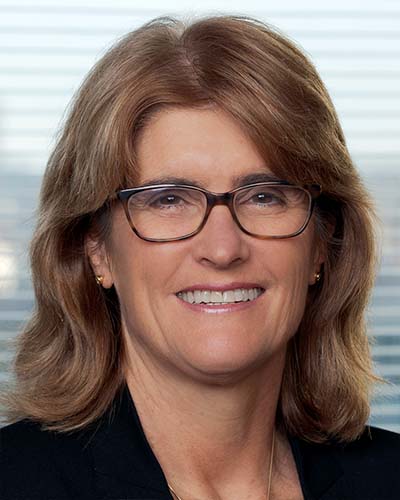Payments System Board Annual Report – 20221. About the Payments System Board
Our role
The Reserve Bank is responsible for ensuring the stability, efficiency and competitiveness of the payments system through the Payments System Board. As set out in the Reserve Bank Act 1959, it is the duty of the Payments System Board to ensure that the Bank’s payments system policy is directed to the greatest advantage of the people of Australia, and to ensure that the powers of the Bank under the Payment Systems (Regulation) Act 1998 and the Payment Systems and Netting Act 1998 are exercised in a way that, in the Board’s opinion, will best contribute to:
- controlling risk in the financial system
- promoting the efficiency of the payments system
- promoting competition in the market for payment services, consistent with the overall stability of the financial system.
Under the Payment Systems (Regulation) Act, the Bank has the power to designate payment systems and to set standards and access regimes for designated systems. The Payment Systems and Netting Act provides the Bank with the power to give legal certainty to certain settlement arrangements in order to minimise the risks of systemic disruptions from payment systems.
In addition, the Payments System Board has a duty to ensure that the powers and functions of the Bank under Part 7.3 of the Corporations Act 2001 are exercised in a way that, in the Board’s opinion, will best contribute to the overall stability of the financial system. These powers and functions relate to the supervision of central counterparties and securities settlement facilities, which are key infrastructure supporting the clearing and settlement of transactions in financial markets. The Bank’s Payments Policy Department also acts as overseer of Australia’s high-value payments system – the Reserve Bank Information and Transfer System (RITS).
Strategic priorities
The Payments System Board sets priorities to guide the Bank’s payments policy work. These were last updated at the August 2021 meeting and were described in the 2021 Payments System Board Annual Report. Work the Bank has undertaken in response to the strategic priorities over the past year is described in the chapters on ‘Retail Payments Regulation and Policy Issues’ and ‘Financial Market Infrastructures’. The Board will review the strategic priorities as the payments landscape evolves.

Payments System Board Members (August 2022)
The Board comprises up to eight members: the Governor; a representative of the Reserve Bank (currently, the Deputy Governor); a representative of the Australian Prudential Regulation Authority (currently the Chair); and up to five other non-executive members appointed by the Treasurer. Members of the Board during 2021/22 and details of their qualifications and experience are shown below.
Philip Lowe

BCom (Hons) (UNSW), PhD (MIT)
Governor and Chair
Governor since 18 September 2016
Present term ends 17 September 2023
Philip Lowe’s appointment as Governor took effect in September 2016. Prior to that, he was Deputy Governor from February 2012 and held various senior positions at the Reserve Bank, including Deputy Governor, Assistant Governor (Economic) and Assistant Governor (Financial System), where he was responsible for overseeing economic and policy advice to the Governor and Reserve Bank Board. He spent two years at the Bank for International Settlements working on financial stability issues. Mr Lowe has authored numerous papers, including on the linkages between monetary policy and financial stability. He is a signatory to The Banking and Finance Oath.
Other roles
Chair – Reserve Bank Board
Chair – Council of Financial Regulators
Chair – Financial Markets Foundation for Children
Chair – Bank for International Settlements Committee on the Global Financial System
Member – Financial Stability Board
Member – Trans-Tasman Council on Banking Supervision
Director – The Anika Foundation
Michele Bullock

BEc (Hons) (UNE), MSc (LSE)
Deputy Governor and Deputy Chair
Deputy Chair since 29 October 2016
Present term as Deputy Governor ends 1 April 2027
Michele Bullock was appointed as Deputy Governor on 2 April 2022. She is Deputy Chair of the Reserve Bank Board and Deputy Chair of the Payments System Board. Prior to her current role, Ms Bullock was Assistant Governor (Financial System), responsible for the Bank’s work on financial stability and oversight of the payments system. Ms Bullock has also held a variety of senior management positions in the Bank. She was Assistant Governor (Business Services), Assistant Governor (Currency), Adviser for the Currency Group and, prior to that, Head of Payments Policy Department. Ms Bullock is a signatory to The Banking and Finance Oath.
Other roles
Deputy Chair – Reserve Bank Board
Member – Basel Committee on Banking Supervision
Member – Council of Financial Regulators
Wayne Byres

BEc (Hons), MAppFin (Macquarie)
APRA-appointed member
Chair, Australian Prudential Regulation Authority
Member since 9 July 2014
Present term ends 30 October 2022 upon resignation as Chair of APRA
Wayne Byres has brought a wealth of experience and knowledge of prudential supervision and banking practices. He was appointed as a Member and Chair of APRA from 1 July 2014 for a five-year term, and was subsequently reappointed on 1 July 2019 for a further five-year term. His early career was at the Reserve Bank, which he joined in 1984. He transferred to APRA on its establishment in 1998 and held a number of senior executive positions in the policy and supervisory divisions. In 2004, Mr Byres was appointed Executive General Manager, Diversified Institutions Division, with responsibility for the supervision of Australia’s largest and most complex financial groups. He held this role until the end of 2011, when he was appointed as Secretary General of the Basel Committee on Banking Supervision, based at the Bank for International Settlements in Basel. Mr Byres is a Senior Fellow of the Financial Services Institute of Australia.
Other roles
Member – Basel Committee on Banking Supervision
Member – Bank for International Settlements Group of Governors and Heads of Supervision
Member – Council of Financial Regulators
Member – Trans-Tasman Council on Banking Supervision
Gina Cass-Gottlieb

BEc (Hons), LLB (Hons) (Sydney), LLM (Berkeley)
Non-executive member
Member from 15 July 2013 to 14 July 2018
Reappointed from 1 August 2018
Present term ends 31 July 2023
Gina Cass-Gottlieb has extensive expertise in all areas of competition law and economic regulatory advice and in the regulation of payments in Australia. Ms Cass-Gottlieb was appointed Chair, Australian Competition and Consumer Commission on 21 March 2022. Prior to this, Ms Cass-Gottlieb was a senior partner in Gilbert + Tobin’s competition and regulation practice, advising and representing corporations, industry associations, government and non-government agencies. She has over 25 years’ experience, including advising in relation to access arrangements in a range of sectors across the economy. Ms Cass-Gottlieb attended the University of California, Berkeley, as a Fulbright Scholar.
Other roles
Chair – Australian Competition and Consumer Commission
Director – Sydney Children’s Hospitals Foundation
Scott Farrell

BEc (Sydney), LLB (Hons) (Sydney), PhD (UNSW)
Non-executive member
Member since 23 March 2022
Present term ends 22 March 2027
Scott Farrell has more than 25 years’ experience in financial markets and financial systems law. In 2016, he was appointed to the Australian Government’s FinTech Advisory Group at its formation and in 2018 was appointed to be co-Chair. Dr Farrell has led a number of reviews for the Australian Government, including the Review into Open Banking in Australia in 2017, the Inquiry into Future Directions for the Consumer Data Right in 2020 and the Review of the Australian Payments System in 2021.
Other roles
Partner – King & Wood Mallesons
Adjunct Professor – School of Private and Commercial Law, University of New South
Wales
Member – Industry, Innovation and Science Australia
Member – Ministerial Advisory Council on Free Trade Agreement Negotiations
Deborah Ralston

BEc, Dip Fin Mgt, MEc (UNE), PhD (Bond)
Non-executive member
Member since 15 December 2016
Present term ends 14 December 2026
Deborah Ralston has more than 25 years of board-level experience in education, banking, superannuation and fintech sectors. Dr Ralston has held senior leadership and research roles in Australian universities, most recently as the Executive Director of the Centre for Financial Studies. Her expertise in public policy is reflected in appointments to the Australian Government’s Retirement Income Review Panel, the Comprehensive Income Products for Retirement Framework Advisory Committee and as inaugural Chair of ASIC’s Digital Finance Advisory Board. Dr Ralston is currently a Professorial Fellow at Monash University Business School, with research interests in financial regulation and superannuation and is a Fellow of CPA Australia and the Australian Institute of Company Directors.
Other roles
Professorial Fellow – Monash University
Chair – Advisory Board, Household Capital
Director – SuperEd Pty Ltd
Director – SMSF Association
Member – Advisory Board, Connexus Institute
Member – Future Fund Board of Guardians
Greg Storey

Non-executive member
Member since 1 August 2018
Present term ends 31 July 2023
Greg Storey is an experienced cards and payments industry professional, with specialist knowledge in the evolution and operation of debit cards, credit cards and payment systems. He was Vice-President and Head of Visa Checkout, Asia Pacific from 2012 to 2016. Mr Storey had over 20 years’ experience with Visa, spanning the rollout of numerous VisaNet-related solutions and services, product and strategy, micropayments solution (Payclick), as well as Visa Checkout (and V.me) products across the Asia Pacific region. Prior to his roles at Visa, Mr Storey worked at St. George Bank in various cards and payments roles, as CIO of an independent payment solution provider, and has established and overseen merchant point of sale and ATM switching operations.
Catherine Walter AM

LLB (Hons), LLM, MBA (Melbourne)
Non-executive member
Member since 3 September 2007
Present term ends 2 September 2022
Catherine Walter brings substantial experience and expertise in financial services and corporate governance across many industry sectors, including banking, insurance, funds management, health services, medical research, education, telecommunications and resources. Mrs Walter is a solicitor and company director, who practised banking and corporate law for 20 years in major city law firms, culminating in a term as Managing Partner of Clayton Utz, Melbourne. She was a Commissioner of the City of Melbourne and for more than 20 years has been a non-executive director of a range of listed companies, government entities and not-for-profit organisations. Mrs Walter was awarded a Centenary Medal in 2001 for her service to Australian society in business leadership. In the 2003 Australia Day Honours, she was awarded a Member of the Order of Australia for her service to business, particularly as a director of a range of public companies, to the arts, to the law, and to the community through the Melbourne City Council. Mrs Walter is a Fellow of the Australian Institute of Company Directors.
Other roles
Chair – Helen Macpherson Smith Trust
Chair – Melbourne Genomics Health Alliance
Director – Australian Foundation Investment Company
Director – Barristers’ Chambers Limited
Non-executive Member – Export Finance Australia
Meetings of the Payments System Board
Since its inception, the Board’s practice has been to meet at least four times a year, with the option of meeting more often if needed. Six meetings were held in 2021/22 – two at the Bank’s Head Office in Sydney and four were held via videoconference owing to the COVID-19 pandemic and domestic travel restrictions. Additional meetings of the Board were held in September and October 2021 to consider the issues raised in the Review of Retail Payments Regulation ahead of the publication of the Conclusions Paper in October.
| Attended | Eligible | |
|---|---|---|
| Philip Lowe (Governor) | 6 | 6 |
| Michele Bullock (RBA) | 6 | 6 |
| Wayne Byres (APRA) | 6 | 6 |
| Gina Cass-Gottlieb | 6 | 6 |
| Scott Farrell(a) | 1 | 1 |
| Deborah Ralston | 6 | 6 |
| Greg Storey | 6 | 6 |
| Catherine Walter | 6 | 6 |
| (a) Scott Farrell’s term on the Board commenced on 23 March 2022. | ||
Conflict of interest policy
The Bank has a number of distinct areas of responsibility in the Australian payments system: it operates and participates in Australia’s real-time gross settlement (RTGS) system, RITS; it provides transactional banking services to the Australian Government and its agencies; and it is principal regulator of the payments system through the Board. This combination of functions is conventional internationally, and the Board has formally adopted a policy on the management of actual or perceived conflicts of interests arising from the Bank’s different roles.
The policy is published on the Bank’s website and focuses on interactions between the Bank’s Payments Policy Department and Banking Department.[1] It was updated during the year to reflect changes to the Bank’s involvement with NPP (New Payments Platform) Australia Ltd (NPPA) following the merger of NPPA with eftpos Payments Australia and BPAY. Details of the steps taken to achieve compliance with the policy, including the minutes of informal meetings between departments, are audited every three years by the Bank’s Audit Department, with the results presented to the Board. The most recent audit was conducted in March 2022.
In the case of the Bank’s oversight of RITS, the Board plays a governance role in managing conflicts of interest. While an internal FMI Review Committee has the formal responsibility to review and approve assessments of other financial market infrastructures (FMIs), the Board retains primary responsibility for approving the staff’s periodic assessments of RITS.
Accountability and communication
The Payments System Board seeks to ensure a high degree of transparency and accountability around its actions through regular reporting to the Australian Government and through the Bank’s communication program.
Accountability
The Bank has a range of reporting obligations that serve to ensure the accountability of the Board. Under the Reserve Bank Act 1959, the Payments System Board is required to:
- inform the government, from time to time, of the Bank’s payments system policy (section 11(1)(b))
- prepare and give to the Treasurer a report that covers certain matters relating to the standards that the Bank determines under section 827D of the Corporations Act 2001 and developments in the clearing and settlement industry that are relevant to Australia’s financial stability (section 25M(1)).
This annual report addresses these requirements and is the primary accountability vehicle with respect to the Bank’s payments system responsibilities. The House of Representatives Economics Committee holds twice-yearly public hearings at which the Bank presents an opening statement on the economy, financial markets and other matters – including payments system matters – pertaining to the Bank’s operations, and responds to questions from Committee members. These hearings may include discussion of developments in the payments system and the Bank’s payments system policy.
The broader accountability of the Bank includes its obligations under the Public Governance, Performance and Accountability Act 2013. The Bank’s annual report, including the annual performance statement, covers the Bank’s role in the payments system.
Communications
The Bank regularly communicates on payments system issues and its regulatory and oversight work through media releases, speeches, research publications, the Bank’s website, and community and industry liaison. The Bank also engages in various international forums relating to payment systems and FMIs.
Media releases around Board decisions
The Bank publishes a media release in the afternoon immediately following each quarterly Board meeting, outlining matters that were discussed by the Board and foreshadowing any forthcoming documents to be released by the Bank. Media releases also accompany any major announcements following decisions taken by the Board.
Speeches
During 2021/22, senior Bank staff gave a number of public speeches and participated in discussion panels on various payments system-related topics, including developments in real-time payments in Australia, the future of payments, and innovations in the payments system such as stablecoins and central bank digital currencies. Audio files and transcripts of speeches are published on the Bank’s website.
Submissions and parliamentary appearances
Where appropriate, the Bank makes submissions to parliamentary and federal government committees and inquiries on payments system-related topics. During 2021/22, the Bank made a submission to the Senate Select Committee on Australia as a Technology and Financial Centre and appeared before hearings of the Joint Committee on Corporations and Financial Services inquiry into mobile payment and digital wallet financial services and the Senate Select Committee on Australia as a Technology and Financial Centre. Copies of the Bank’s submissions can be found on the Bank’s website.[2]
Research and statistics
To support the Bank’s research and policy work, statistics on retail payments are collected by the Bank on a monthly basis from financial institutions, card companies and other payments system participants. Data on debit and credit cards, ATM transactions, merchant fees, bulk electronic transfers, NPP transactions and cheques provide insights on how individuals and businesses make and receive payments. These aggregated data are published as part of the statistical tables on the Bank’s website.[3] During 2021/22, the Bank undertook a number of initiatives to expand the data it collects. For example, it began collecting data on ‘buy now, pay later’ (BNPL) and mobile wallet transactions and the adoption of least-cost routing functionality for debit card transactions. The Bank also started publishing more granular data on merchant-service fees.
The Bank also began preparations for its sixth triennial survey of consumer payments, with the survey to be conducted in October 2022 and results to be published in mid-2023. The survey will provide an updated look at how consumer payment choices have been changing, particularly following the pandemic, including the use of cash and electronic payments.
Liaison activity
The Bank engages with a wide range of stakeholders in Australia and overseas.
Domestic liaison
The Bank engaged with a range of participants in the payments industry to discuss policy issues and market developments. During 2021/22, this stakeholder engagement continued to focus on issues related to the Bank’s comprehensive Review of Retail Payments Regulation, which began in late 2019 and concluded in October 2021. There was extensive engagement with stakeholders in response to the consultation paper the Bank published in May 2021, which set out proposed policy actions from the Review. Following the publication of the Conclusions Paper in October, Bank staff have continued to engage widely with stakeholders on the implementation of various policy actions, particularly in relation to the Bank’s expectations on issuance of dual-network debit cards and least-cost routing of debit transactions.
Outside of the Review, the Bank’s meetings with stakeholders on retail payments issues over the past year have focused on a wide range of issues, including challenges in cross-border payments, the development of the NPP, initiatives to bolster the security and reliability of retail payments, the future of cash, competition in the debit card market and competition in the acquiring market. Bank staff have also continued to engage with stakeholders regarding their obligations under the Bank’s card payments regulations. Another focus of the Bank’s engagement with payments industry participants has been on technology and innovation, especially in relation to BNPL services, stablecoins, central bank digital currency and the role of new players in the payments ecosystem.
In August 2021, the Board held its final annual meeting with members of the Australian Payments Council (APC).[4] The meeting included discussion of the APC’s strategic focus areas relating to improving systemic resilience of the payments system, combatting financial crime, the decline of cash, and industry plans for the future of the cheques and Direct Entry systems. In February 2022, the APC decided to discontinue its role as the strategic coordination body for the payments industry. This decision followed consultation with the Board, in which it was recognised that new arrangements for strategic oversight of the payments system announced by the government in December 2021 in response to the Treasury Payments System Review would largely supersede the role of the APC. The Board thanked recent and past members of the APC for their commitment to collaboration and cooperation to support the strategic development of Australia’s payments system.
Bank staff meet regularly with senior staff of the Australian Payments Network (AusPayNet), the main self-regulatory body for the payments industry, to discuss industry initiatives and developments. These meetings take place consistent with an agreement on liaison arrangements between the two organisations that is published on the Bank’s website.[5] The staff also meet periodically with counterparts from a range of government agencies, including the Australian Competition and Consumer Commission (ACCC), Australian Prudential Regulation Authority (APRA), Australian Securities and Investments Commission (ASIC), the Australian Transaction Reports and Analysis Centre (AUSTRAC) and the Treasury. An MOU between the ACCC and the Bank sets out an agreed basis for policy coordination, information sharing and liaison between the two agencies. There has been significant engagement with Treasury during the past year on issues relating to implementation of the payments system reforms announced by the government in December 2021.
The Bank continues to be involved in the NPP, which is operated by NPPA, now a wholly owned subsidiary of Australian Payments Plus. The Bank operates the Fast Settlement Service (FSS), which enables the settlement of NPP payments individually in real time. Further, the Banking Department is a direct participant in the NPP, providing payments services to its government clients via the NPP. Until September 2021, the Head of Payments Settlements Department was a Bank-appointed member of the NPPA Board.[6] Staff from Payments Policy Department hold regular liaison meetings with senior staff from NPPA to discuss developments in relation to the NPP, including on the development of new NPP capabilities and new payment services that utilise the NPP infrastructure.
The Bank meets regularly with each FMI it supervises. These meetings cover a wide range of topics, including developments in financial and operational risk management. As ASIC and the Bank have complementary regulatory responsibilities for the supervision of clearing and settlement (CS) facilities, the two agencies coordinate their liaison with these facilities. ASIC and the Bank also liaise with market participants on a range of topics related to clearing and settlement.
The Bank continues to work closely with other agencies of the Council of Financial Regulators (CFR) (and, where relevant, the ACCC) on a number of policy issues. These include the Australian Government’s reforms to the regulatory regime for FMIs and the introduction of a crisis management regime for CS facilities, competition in clearing and settlement of equities, cybersecurity and de-banking. The CFR agencies, along with AUSTRAC, ACCC and a number of other government departments, participate in a working group that is considering the implications of stablecoins and other types of crypto-assets for the financial sector and regulation.
Staff also attend various conferences and seminars on issues related to payments and FMIs, in some cases as speakers or panellists.
Payments Consultation Group
In addition to bilateral liaison with stakeholders representing end users, the Bank convenes a Payments Consultation Group with the aim of providing a more structured mechanism for users of the payments system (consumers, merchants, businesses and government agencies) to express their views on payments system issues as an input to the policy formulation process. The Payments Consultation Group helps to keep the staff and Board well informed of the payments system needs and challenges of end users as an input to the Bank’s policy work.
The Payments Consultation Group met twice in 2021/22 and discussed a range of topics, including payment scams, retail payment service reliability, the development of the NPP, trends in merchant payment costs and policy actions coming out of the Bank’s Review of Retail Payments Regulation. The Board appreciates the valuable feedback provided by the participants and their willingness to engage in this process.
International engagement
The Bank is a member of the Bank for International Settlements’ (BIS) Committee on Payments and Market Infrastructures (CPMI), which serves as a forum for central banks to monitor and analyse developments in payment, clearing and settlement infrastructures, and sets international standards. It has members from 28 central banks. Joint working groups of the CPMI and the International Organization of Securities Commissions (IOSCO) bring together members of these two bodies to coordinate policy work on the regulation of FMIs. Bank staff are members of a number of CPMI working groups, including some that are contributing to elements of the international roadmap for enhancing cross-border payments. The Bank also participates in a Financial Stability Board (FSB) working group examining the regulation of global stablecoin arrangements.
The Bank is a member of the Executives’ Meeting of East Asia-Pacific Central Banks (EMEAP) Working Group on Payments and Market Infrastructures. This is a regional forum for sharing information and experiences relating to the development, oversight and regulation of retail payment systems and FMIs. Over the past year, the Bank participated in a joint initiative of CPMI, IOSCO and the Basel Committee on Banking Supervision conducting analysis of the changes that were made to margin requirements during the March 2020 market volatility. This group released a consultative report proposing further work on a range of margin-related issues in late 2021. The Bank also contributed to reports on client clearing and non-default losses in FMIs.
In addition to these more policy-focused forums, the Bank also participates in several multilateral and bilateral arrangements to support its oversight of overseas-based FMIs. Table 1.2 presents a breakdown of the Bank’s participation in the international forums relevant to the mandate of the Board.
| Name of the forum | Organiser/secretariat | Mandate | Membership |
|---|---|---|---|
| Policy-focused forums | |||
| CPMI | BIS | Monitoring and analysing developments in payment, clearing and settlement infrastructures, standard setting. | 28 central banks – CPMI members. |
| CPMI–IOSCO Steering Group | BIS/IOSCO | Providing operational guidance on joint CPMI–IOSCO work. | CPMI and IOSCO members. |
| CPMI–IOSCO Policy Standing Group | BIS/IOSCO | Developing supervisory policies and guidance. | CPMI and IOSCO members. |
| CPMI–IOSCO Implementation Monitoring Standing Group | BIS/IOSCO | Monitoring of Principles for Financial Market Infrastructures implementation in 28 CPMI–IOSCO jurisdictions. | CPMI and IOSCO members. |
| FMI Cross Border Crisis Management Group | FSB | Development of resolution strategies and operational resolution plans for CCPs. | Representatives from 24 jurisdictions, major international financial institutions (including the International Monetary Fund and BIS), standard-setting bodies (such as the Basel Committee on Banking Supervision). |
| FSB Regulatory Issues in Stablecoins Working Group | FSB | Development and monitoring of approaches to the regulation, supervision and oversight of global stablecoin arrangements. | Representatives from FSB member jurisdictions, international organisations and international standard-setting bodies. |
| EMEAP Working Group on Payments and Market Infrastructures | Rotating Reserve Bank of New Zealand (until August 2022) RBA (from August 2022) |
Information and experience sharing on the regulation and oversight of payment systems and FMIs. | RBA, The People’s Bank of China, Hong Kong Monetary Authority, Bank Indonesia, Bank of Japan, Bank of Korea, Bank Negara Malaysia, Reserve Bank of New Zealand, Bangko Sentral Ng Pilipinas, Monetary Authority of Singapore, Bank of Thailand. |
| Cooperative oversight forums | |||
| CLS Oversight Committee | Federal Reserve Bank of New York | Cooperative oversight of the CLS. | 23 central banks representing 18 CLS settlement-eligible currencies plus five additional Eurosystem central banks. |
| SWIFT Oversight Forum | National Bank of Belgium | Providing input to cooperative oversight of SWIFT exercised by SWIFT Oversight Group (OG). | G10 central banks (OG) and 10 additional central banks |
| LCH Ltd Supervisory College and Crisis Management Group | Bank of England | Cooperative oversight of LCH Ltd. | Central banks and securities regulatory authorities from 20 jurisdictions of LCH Ltd operation. |
| Multilateral Oversight Group for the Euroclear Bank | National Bank of Belgium | Cooperative oversight of Euroclear Bank. | RBA, Federal Reserve, Bank of England, Bank of Japan, European Central Bank. |
Endnotes
See RBA, ‘Managing Potential Conflicts of Interest Arising from the Bank’s Commercial Activities’. [1]
See RBA, ‘Submissions – Payments System’. [2]
See RBA, ‘Payments Data’. [3]
The APC was established in 2014 as a strategic coordination body for the payments industry, with members drawn from a range of payments organisations including financial institutions, card schemes, retail acquirers, the Australian Payments Network and the Bank (in its role as provider of banking services to the government). [4]
See RBA (2021), ‘Memorandum of Understanding for Liaison Procedures between the RBA and AusPayNet’, February. [5]
The Bank divested its shareholding in NPPA when NPPA merged with eftpos and BPAY Group to form Australian Payments Plus in February 2022. [6]